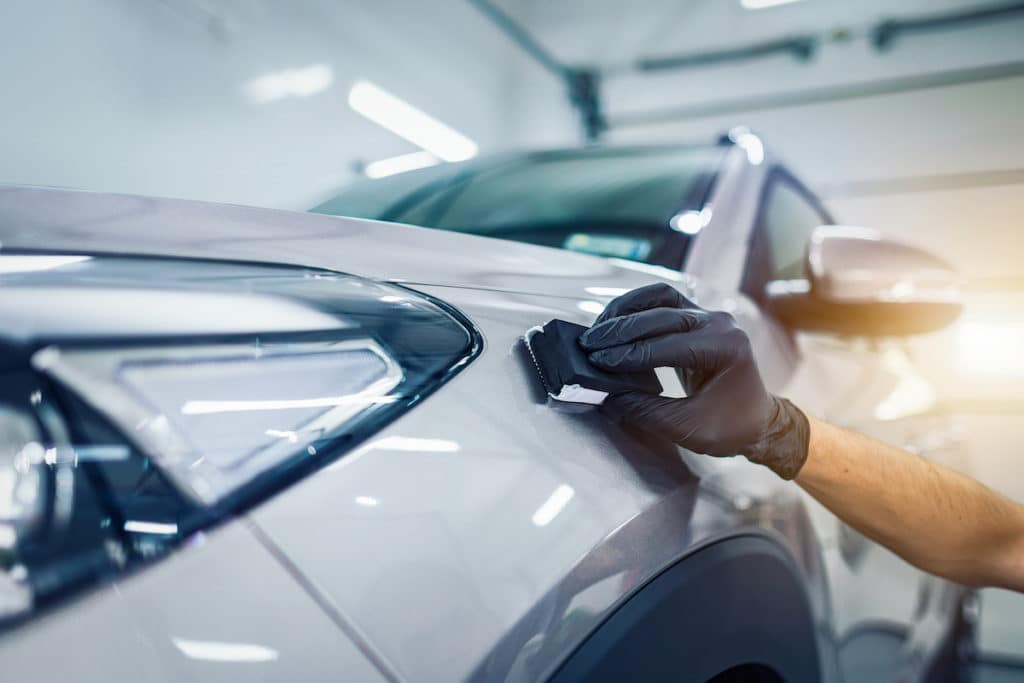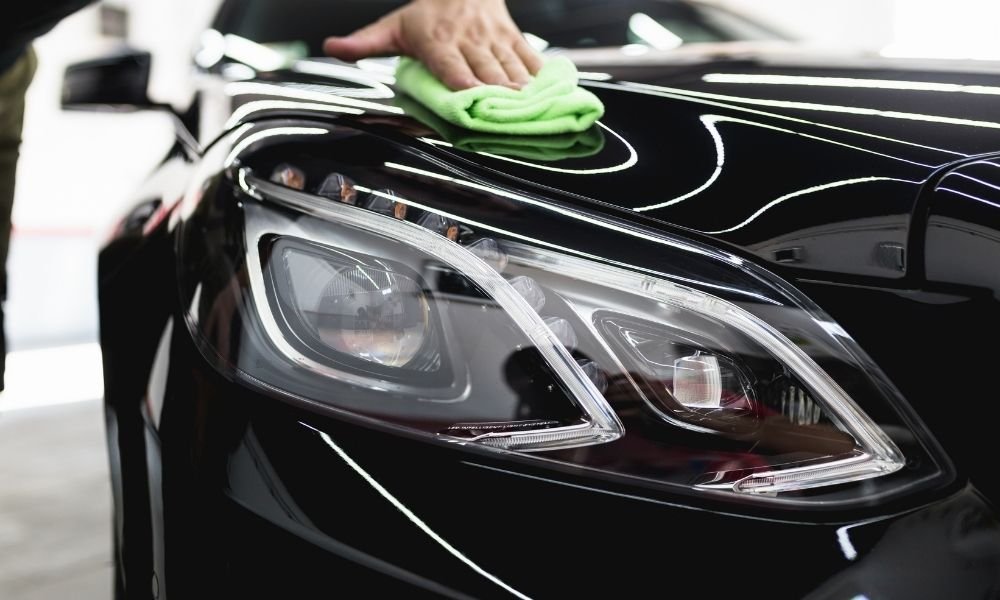Testimonials and Reviews from Delighted Consumers of Ceramic Coating Philadelphia
Testimonials and Reviews from Delighted Consumers of Ceramic Coating Philadelphia
Blog Article
Why Ceramic Finishing Is the Ultimate Solution for a Perfect End Up
Ceramic layer has emerged as a leading remedy for those seeking a perfect finish for their cars, many thanks to its remarkable sturdiness and protective features. What aspects really set ceramic layer apart?
What Is Ceramic Finish?

When applied correctly, ceramic finish creates a hydrophobic surface area that drives away water and dust, making it easier to cleanse and keep. Unlike conventional waxes or sealants, which normally use short-lived security, ceramic layers can last for several years, depending upon the product quality and application technique. The procedure of using ceramic covering calls for thorough preparation, including complete cleansing and occasionally repaint modification, to ensure optimal bonding and performance.
Ceramic finishes are not restricted to automobile surface areas; they can likewise be made use of on numerous products, consisting of glass, metal, and plastics, providing a functional solution for enhancing defense. On the whole, ceramic finishing represents a substantial innovation in surface security technology, combining both aesthetic and useful benefits for a wide range of applications.
Benefits of Ceramic Finish
While lots of surface area protection alternatives exist, the benefits of ceramic finish stand apart because of its unique homes and lasting performance. One of the primary advantages is its phenomenal resilience. Ceramic Coating Philadelphia. Unlike conventional wax or sealers that need regular reapplication, ceramic coatings provide a resilient layer that can last for a number of years, dramatically reducing upkeep initiatives
One more notable advantage is improved protection versus ecological impurities. Ceramic finishes develop a hydrophobic surface area that drives away water, dirt, and numerous contaminants, making it much easier to clean. This function not only protects the vehicle's look yet likewise reduces the risk of rust and oxidation, specifically in harsh weather condition conditions.
In addition, ceramic finishes provide superior resistance to UV rays, preventing fading and deterioration of paint with time. This UV defense is critical for keeping the visual value of surface areas and cars exposed to direct sunshine.
Furthermore, the glossy finish accomplished with ceramic layer improves the total visual charm, offering surfaces a showroom-quality sparkle. Overall, ceramic layers stand for a considerable improvement in surface security technology, supplying long-lasting benefits that deal with both aesthetic and functional needs.
Just How It Works
Comprehending the scientific research behind ceramic finishings exposes just how they offer such impressive protection and long life. At its core, a ceramic finish is a liquid polymer that chemically bonds with the lorry's manufacturing facility paint. This bonding creates a safety layer that is both hydrophobic and oleophobic, repelling water, dust, and oil. The key part of most ceramic finishes is silicon dioxide (SiO2), which is originated from quartz. This substance adds to the covering's solidity and resistance to scratches, UV rays, and environmental impurities.
The application process includes several actions, including surface preparation, which is critical to accomplishing optimum attachment. When applied, the coating undertakes a treating procedure, during which it sets and develops a semi-permanent bond with the paint surface. This bond is what identifies ceramic coatings from typical waxes and sealants, offering a longer-lasting safety obstacle that can withstand for many years.
Additionally, the thickness of the finish can improve its protective qualities, ensuring that it can withstand extreme conditions. Ultimately, click resources the science of my review here ceramic finishes integrates innovative products with cutting-edge application strategies to deliver an unparalleled degree of defense and aesthetic improvement for vehicles.
Comparison With Traditional Methods
The benefits of ceramic coatings end up being particularly noticeable when compared to traditional paint defense methods such as sealers and waxes. While waxes supply a short-term shine, usually lasting a few weeks to a number of months, ceramic finishings give a durable protective layer that can sustain for several years. This toughness considerably minimizes the frequency of reapplication, making ceramic coatings an extra affordable solution gradually.
In addition, typical methods commonly need comprehensive prep work and several applications to achieve a satisfactory level of security. On the other hand, ceramic finishes bond at a molecular degree with the vehicle's surface area, producing a robust shield against environmental pollutants like UV rays, acid rainfall, and roadway salts. This bond boosts the car's resistance to scrapes and swirl marks, which prevail with standard waxes and sealants.
Furthermore, the hydrophobic properties of ceramic layers push back water and dust, resulting in simpler cleaning and maintenance. In comparison, wax and sealant-treated surfaces can bring in crud, demanding even more regular cleaning - Ceramic Coating Philadelphia. On the whole, ceramic coatings not just give premium defense yet additionally supply a much more visually attractive and enduring surface, establishing them as the preferred option for critical lorry proprietors
Application and Upkeep Tips

Making use of a foam applicator, use the covering in little sections, following the maker's standards concerning density and overlap. Allow enough curing time in between coats, usually 24-hour, to guarantee appropriate bonding. After application, it is important to avoid direct exposure to water or severe aspects for at least a week to permit the finishing to fully treat.
Additionally, making use of a ceramic upkeep spray can improve the layer's hydrophobic residential properties and durability. Regular evaluations for any indications of wear will certainly assist keep the layer's honesty and maintain that immaculate surface.
Final Thought
In final thought, ceramic finishing arises as an exceptional alternative for achieving a perfect vehicle surface. By creating a durable bond with factory paint, ceramic coating efficiently guards against scratches, UV rays, and environmental impurities.

Report this page